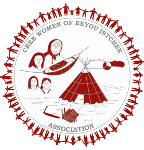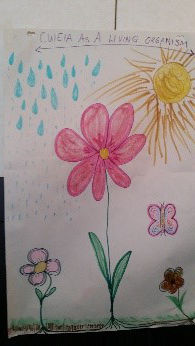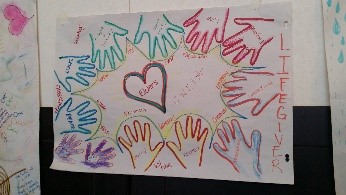STRENGTHS
Our Board sees CWEIA as a loving and caring organization, made out of women from each community who are passionate and compassionate, and who really want to make a different towards healthy living! When the Board thinks of CWEIA, they think of nature: trees, flowers and life. They saw the strength of CWEIA being the joy and perseverance of the women involved, the power and empowerment and the voice that the organization provides for Cree women. CWEIA is made out of dedicated movers and shakers, who want to nurture the capacity for change that exist in every woman and who don’t hesitate to support one another! Also, the cultural and traditional grounding of CWEIA are strengths for we must tap into: the involvement and guidance of the Elders’ Council is much appreciated. We are advocates, not politicians; we unite our voices to make things happen with others in our nation.
CWEIA raises awareness on the traditional role of women, and that is important. Other strengths are that the organization is grassroots, and that the local and regional levels work together and communicate with one another well. CWEIA is a healthy organization rooted in our values and taking action for the greater good of all the people, men, women and children in Eeyou Istchee. We take these matters at heart. We women are life givers, and we want to act in peace, spirit, unity, respect, compassion and love for our children and communities. The Board is very proud of events such as the Recognition Gala held on International Women’s Day, the Eeyou Healing Retreat and the Retreat on Violence, or endeavours such as the maternity project. CWEIA stands strong and creates opportunities for healing, teaching, sharing wisdom and knowledge with one another. CWEIA makes us feel proud of being a woman; we have many strengths to build on!
OPPORTUNITIES
We see four main opportunities in our environment.
- Partnerships & Collaboration
We are not alone to wish for our vision to be attained, for our mission to be completed. Many Cree entities work in the same direction as us and have similar mission statements. There are opportunities to work together with organizations in providing training and education on family life and rites of passage in the Cree language, in holding multigenerational ceremonies, in contributing to health and self-care programs, in raising awareness and responding to violence… possibilities are endless and we can approach other organizations as well as the existing leadership to recognize and respond to needs in our communities. We do not want to compete; we want to collaborate. But we are legitimate when we develop services and projects for Cree women especially if women need and women issues are not well currently served.
- Equal Opportunity for Representation
In 2016, there is a window of opportunity for more women to participate in decision making at all levels of government around the world, including in the Cree world, on organizations’ Boards and on Chief and Council. There is room for more women and there is a demand to bring their expertise, their strengths and their point of view. We can also be a united voice for traditional values and teachings from elders to be integrated in our governance, as we want to connect with our culture.
- Diversify Funding
As times change and organizations and funders seek to find ways to have a bigger impact while dealing with annual funding cutbacks from local, regional and provincial government organizations, we have a chance to become more innovative in our approach to support our work financially. The social economy is more and more well-known in Eeyou Istchee, and we have all the expertise it takes to be part of the movement and generate part of our own funding. One of our funders, Secrétariat à la condition féminine, is reviewing its programs and its planning, which makes new opportunities available for the future.
- Change in Tone at the Federal Level
We are noticing an increase in the presence of aboriginal issues at the federal level, which is happening concurrently with the rise of movements standing to honour Indigenous sovereignty, such as Idle no More and the Journey of Nishiyuu. The government is changing tones, starting with Prime Minister Harper’s statement of apology to former students of Indian residential schools, and going on with the completion of the hearings of the Truth and Reconciliation Commission, meant to shed light on the truth of residential schools and their legacy. More recently, the government has launched a national inquiry into Missing and Murdered Aboriginal Women and girls. All that lead us to believe that the earth is ripe for new dialogs and new avenues for collaboration and respect with Canadian authorities to be opened.
We also want to connect with provincial and national women’ associations, because we find that we work in the same direction. Below are some themes other organizations are working in that we also work in.




